Trump's Impeachment trial

The Trump impeachment trial impacted Trump's reputation and was also a deciding factor on if he would be allowed to run for election again in the future. Invisibly used it’s Realtime Research tool to poll 1217 Americans to find out if people feel he should have been convicted or not.
Highlights
- We surveyed over 1200 people to learn their opinions on the Trump impeachment trial, and to understand their political leanings.
- The results show the majority of Republicans felt he should not be convicted, where the majority of both Democrats and Independents felt he should be convicted.
- A majority of both Democrats and Independents feel that Trump should not be allowed to run for office again, compared to a majority of Republicans who feel he should be allowed to.
Results
When asked whether or not people felt Trump should have been convicted in his impeachment trial, 51% said no compared to 49% who said yes. When broken down by political affiliation, 81% of strong Democrats and 87% of moderate Democrats felt he should be convicted, compared to 88% of strong Republicans and 82% of moderate Republicans who felt he should not be convicted. Independents were split 55% in favor of conviction and 45% not.
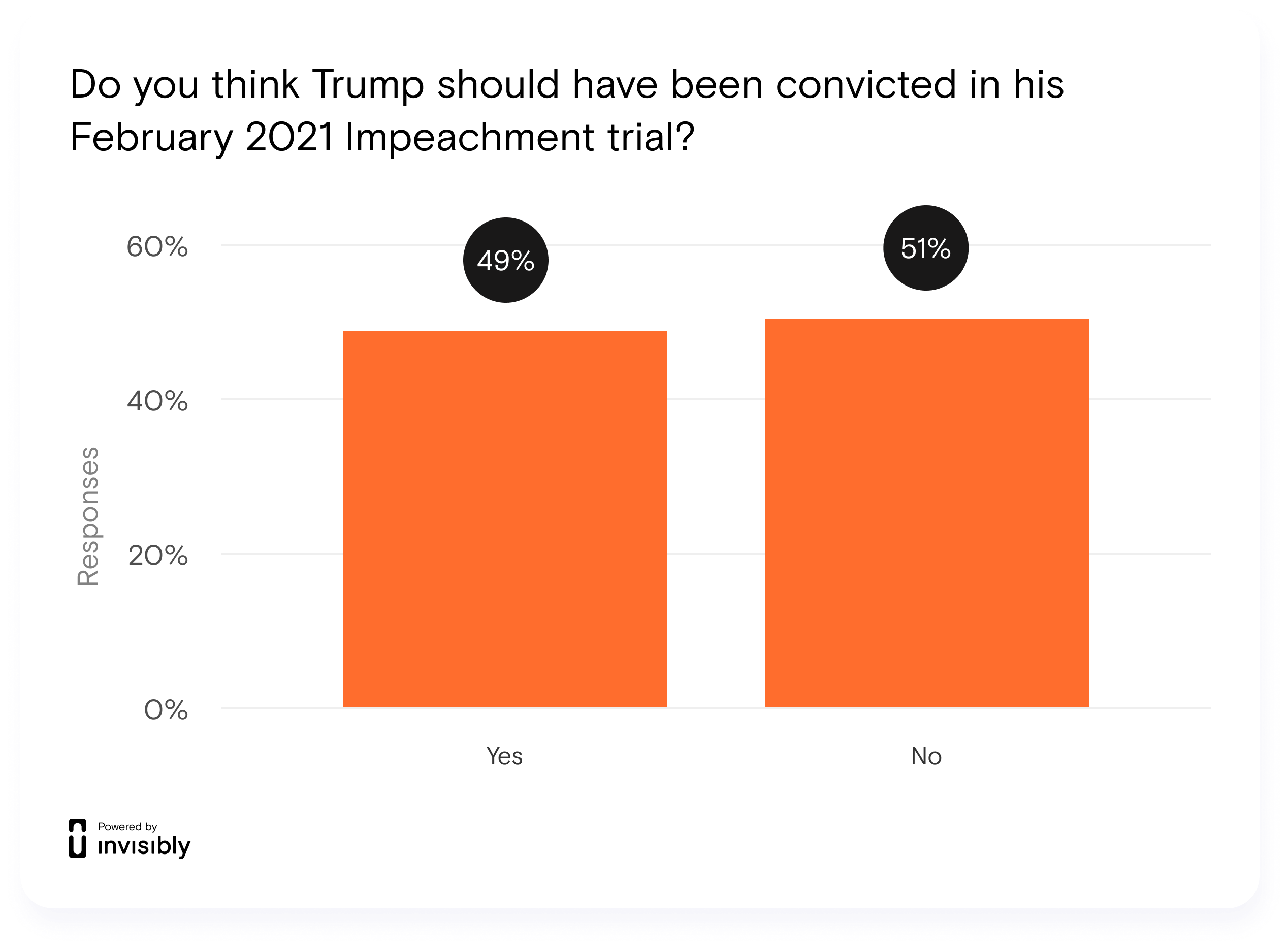
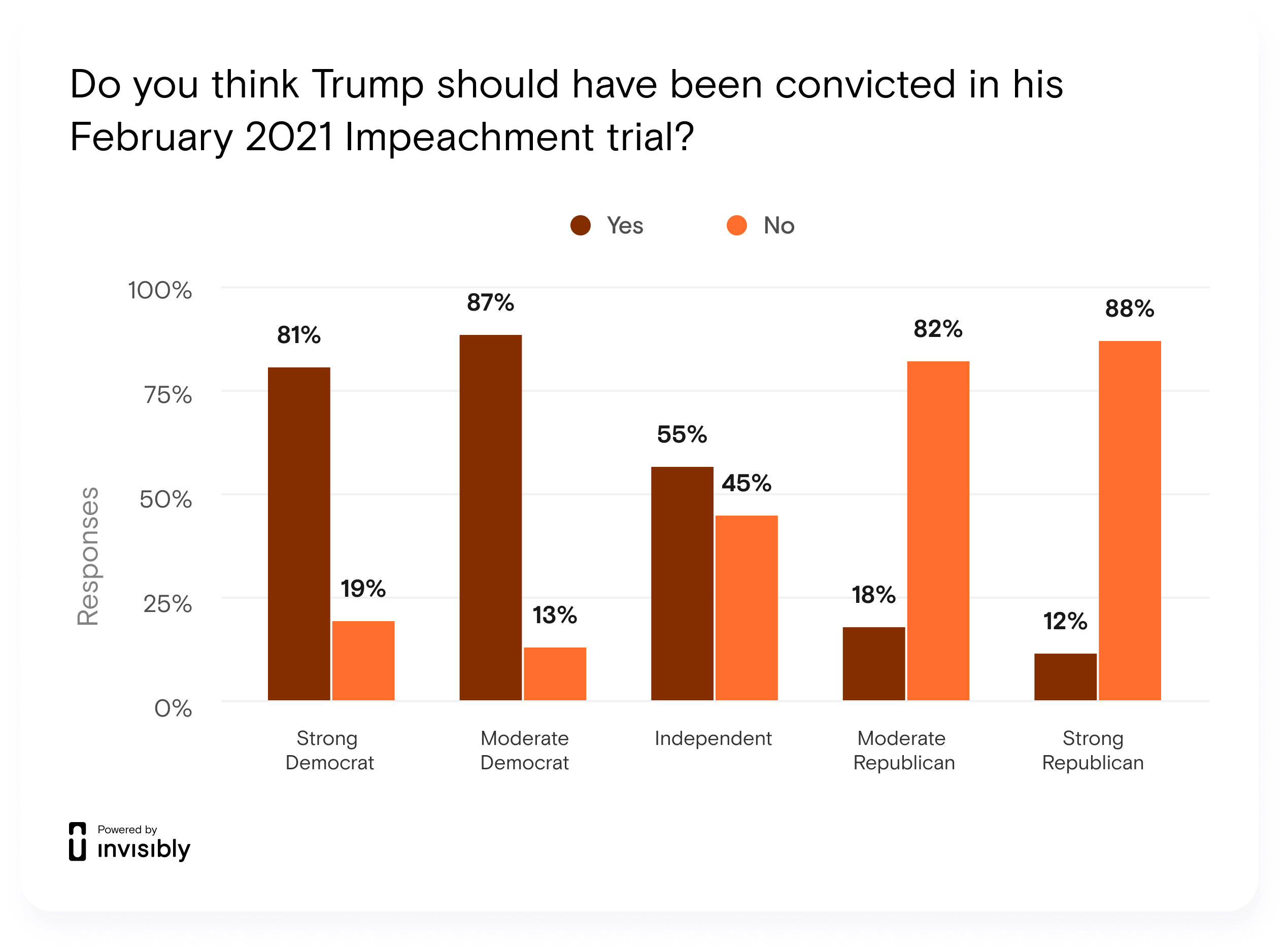 When asked whether Trump should be allowed to run for President again, 56% said no,
compared to 44% that believe he should be allowed to. When broken down by political affiliation, 79% of strong
Democrats and 88% of moderate Democrats said no, he should not be allowed to run for President again.
Conversely, 77% of strong Republicans and 76% of moderate Republicans said he should be allowed to run again.
63% of Independents said he should not be allowed to run again, compared to only 37% who felt he should be
allowed to.
When asked whether Trump should be allowed to run for President again, 56% said no,
compared to 44% that believe he should be allowed to. When broken down by political affiliation, 79% of strong
Democrats and 88% of moderate Democrats said no, he should not be allowed to run for President again.
Conversely, 77% of strong Republicans and 76% of moderate Republicans said he should be allowed to run again.
63% of Independents said he should not be allowed to run again, compared to only 37% who felt he should be
allowed to.
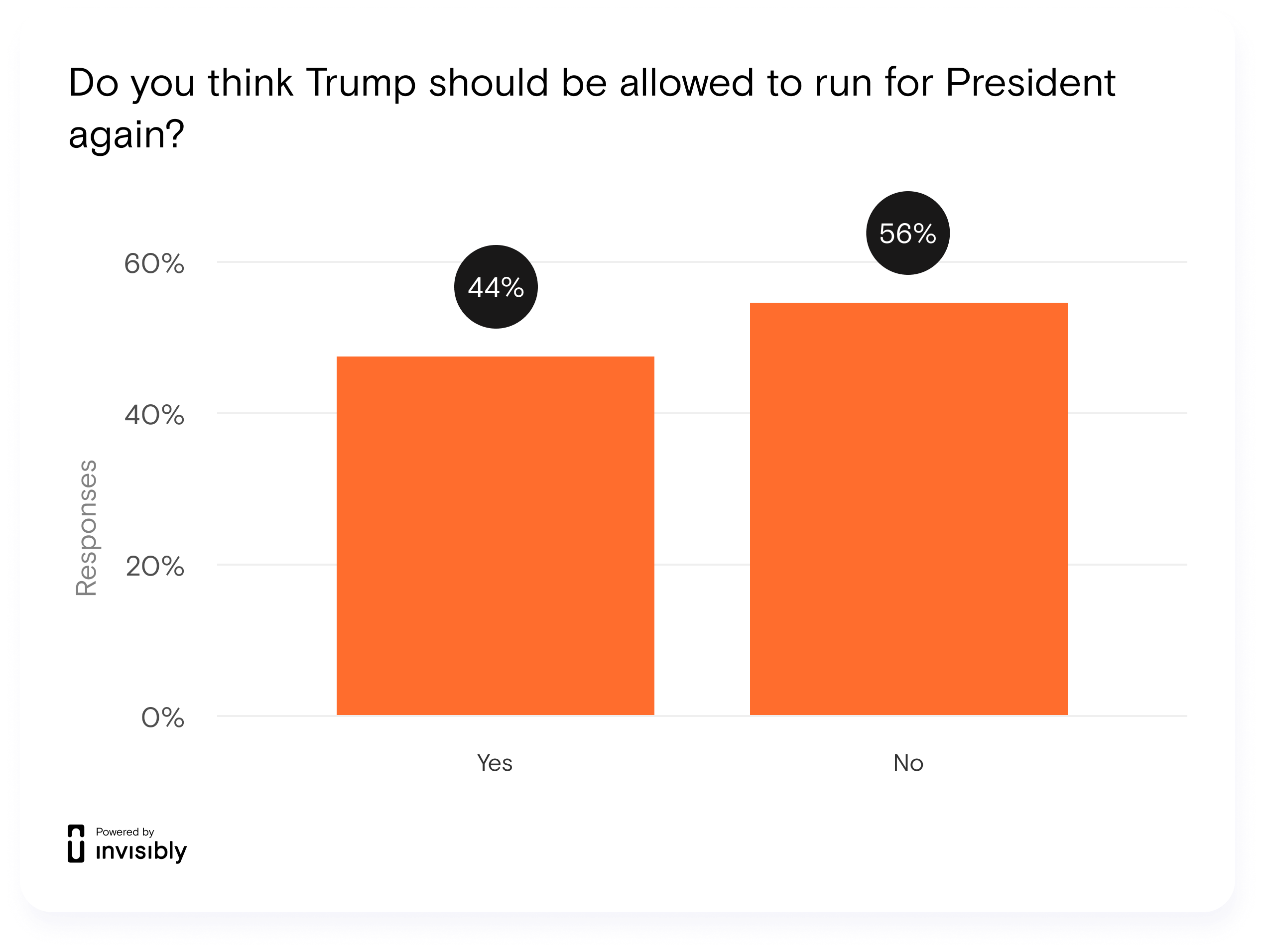
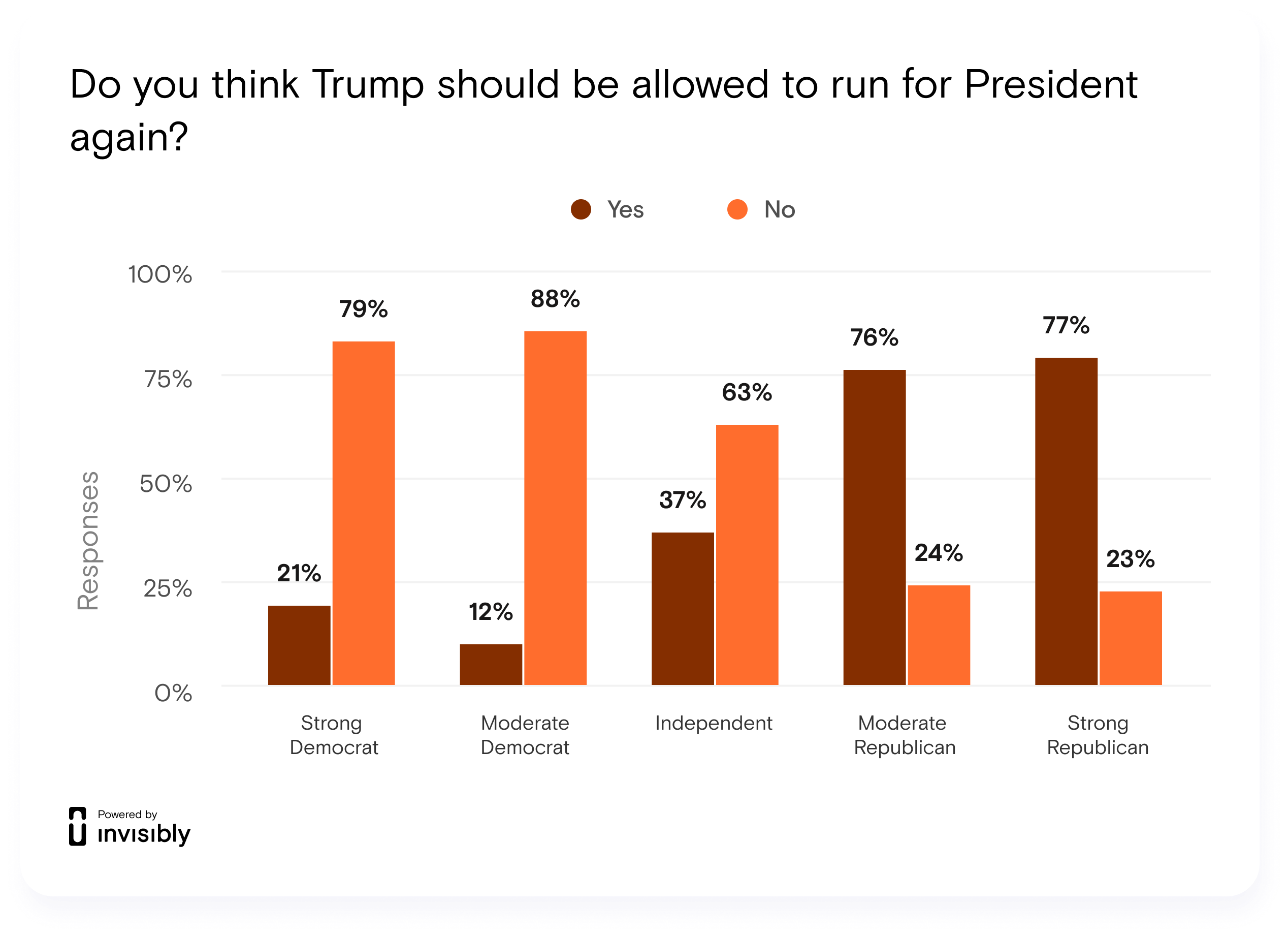
When asked what people’s political affiliation was, 41% responded Independent or other. 18% identified as strong Republican, 13% as a moderate Republican, 12% as a strong Democrat and 16% as a moderate Democrat.
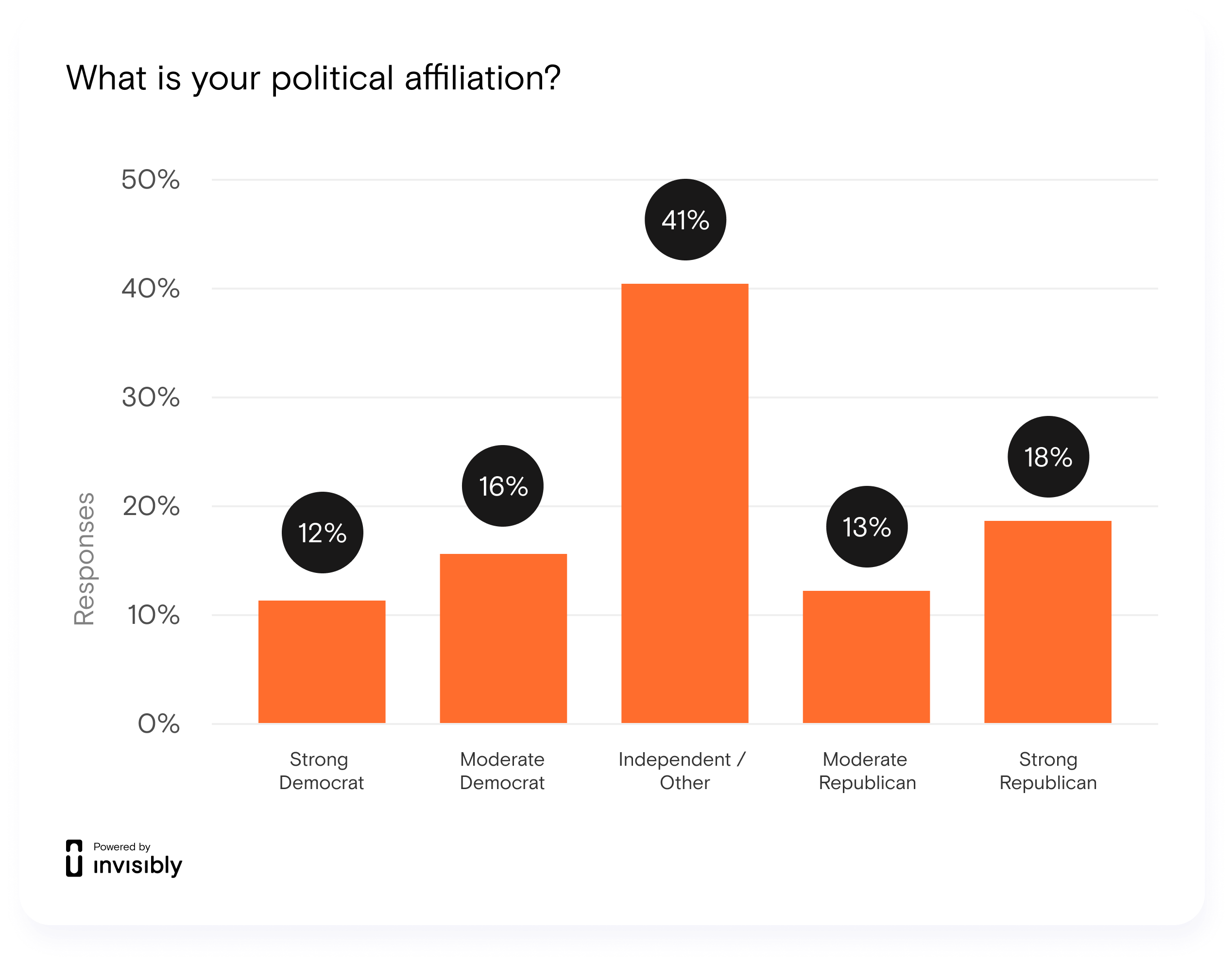
When looking at age, it became clear that age is playing a major factor in people’s political affiliation, with the largest percentage of strong Democrats, 64%, identifying as 18-24 years old. Those identifying as either moderate or strong Republican had the lowest numbers in the 25-40 age range, with only 5% and 6% respectively. The largest percentage of Independents 38%, were equally split between the 18-24 age range and the 55+ range, with the remaining 24% falling between 25-54 age range.
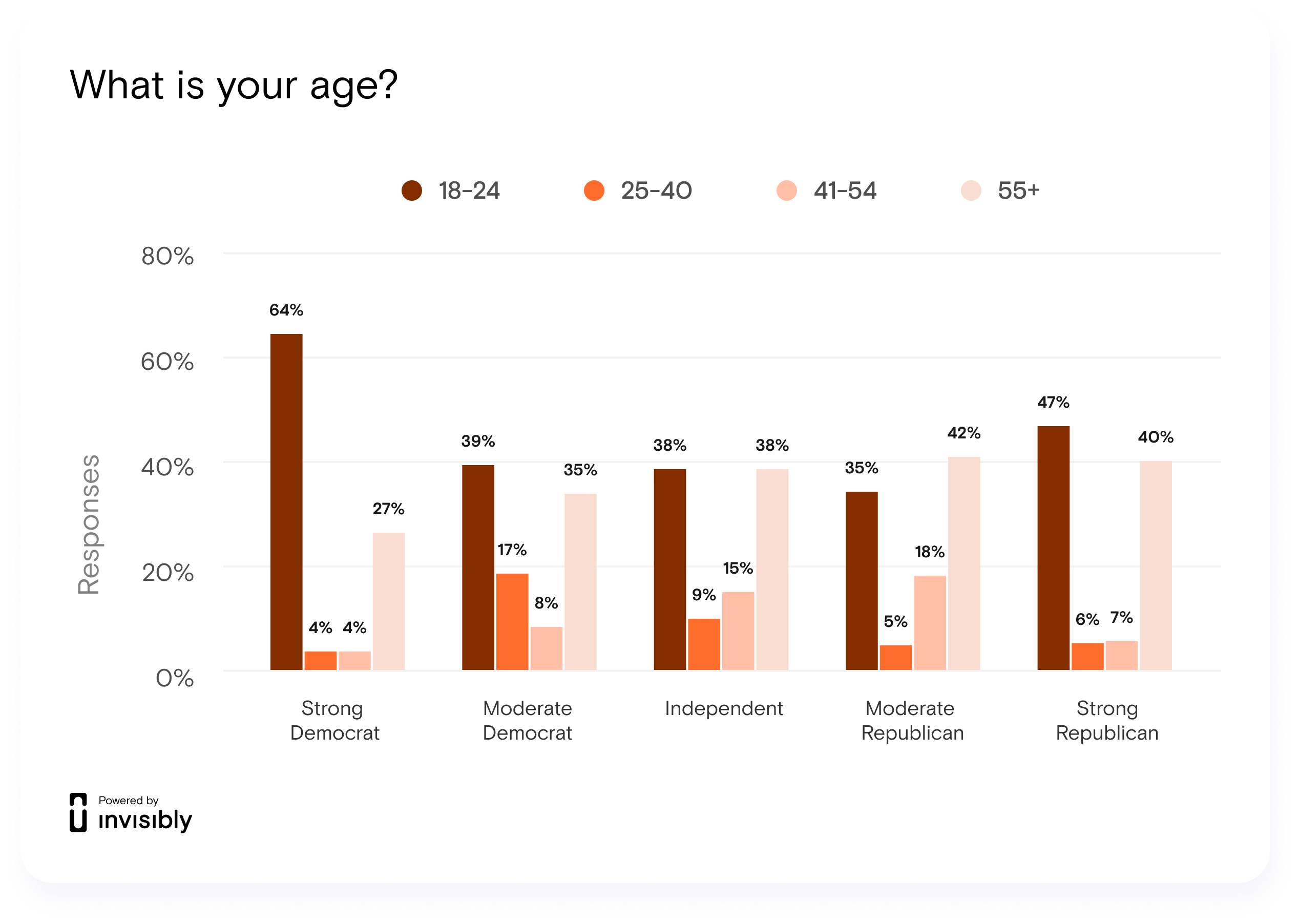
The Process
From March 1st – March 5th, 2021 Invisibly questioned Americans on their opinions of the Trump impeachment case. Invisibly used their Realtime Research polling tool to learn whether people feel he should have been convicted and whether or not he should be allowed to run for office again. We asked questions about age and political affiliation to see how this factored into people’s responses..
We Asked
- Do you think Trump should have been convicted in his February 2021 Impeachment trial?
- Do you think Trump should be allowed to run for President again?
- What is your political affiliation?
- What is your age?
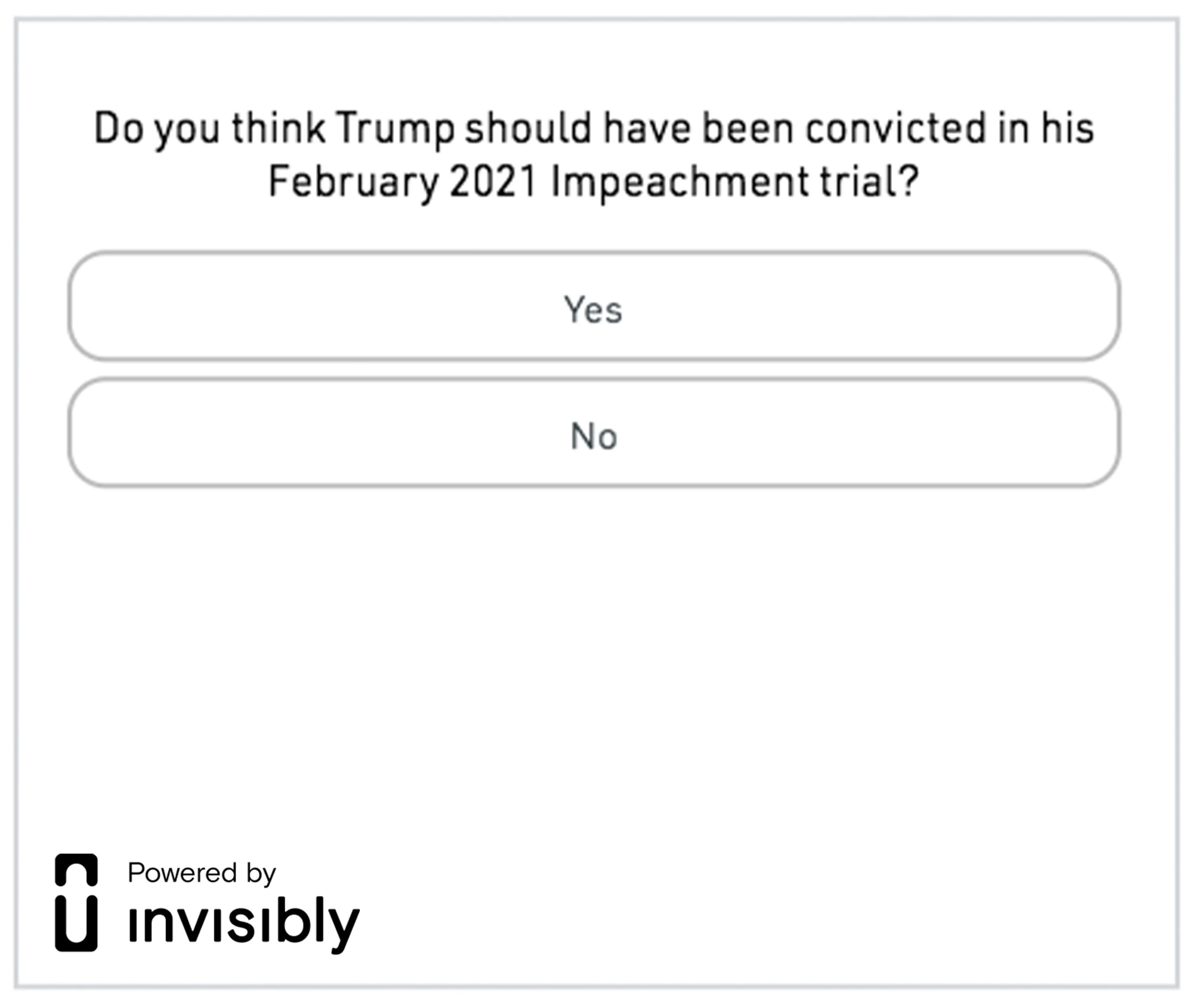
Discussion
We were surprised at how many in the Gen Z age group identified as a strong Democrat, and also that that same age group has the largest percent of strong Republicans. It’s not surprising though that people tend towards more of a black and white mentality in their younger years, and become more moderate as they age, which we’ve seen in this survey as well. It was also not surprising that the majority of Democrats wanted Trump convicted during his impeachment trial whereas a majority of Republicans did not.
What was surprising was that more people thought he should not be allowed to run for President again: that suggests people may not have known that convicting him in the trial would have led to that outcome, since only 49% felt he should be convicted, but 56% felt he should not be allowed to run for President again.
Invisibly Realtime Research surveys differ from traditional online surveys in that the questions are shown to the user on web pages in place of an ad (Figure 1). Unlike Google Surveys, which block access to content until the questions are answered, Realtime Research surveys are optional, thus ensuring that participants are responding voluntarily.

Invisibly
Use your data to access premium content you love.
